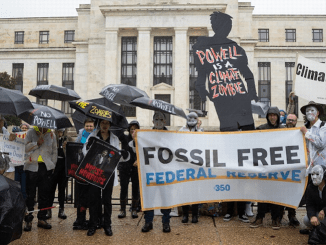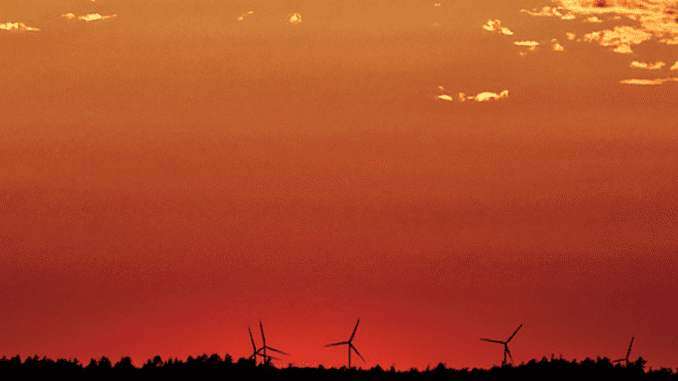
INTERLAKEN, Switzerland, March 20, 2023 (ENS) – Global temperatures have already risen to 1.1 degrees Celsius above pre-industrial levels after more than a century of burning fossil fuels, as well as unequal and unsustainable energy and land use. More frequent and intense extreme weather events have caused dangerous impacts on nature and people in every region of the world, finds a major new UN report from the Intergovernmental Panel on Climate Change, IPCC.
The study, “Climate Change 2023: Synthesis Report,” for the IPCC’s Sixth Assessment Report was released Monday following a week-long IPCC session in Interlaken. It outlines the many options that can be taken now to reduce greenhouse gas emissions and adapt to human-caused climate change.
It focuses on the losses and damages being experienced now and expected to continue into the future, which are hitting the most vulnerable people and ecosystems especially hard.
UN Secretary General Antonio Guterres described the IPCC report as a “how-to guide to defuse the climate time-bomb” in a video message released Monday.
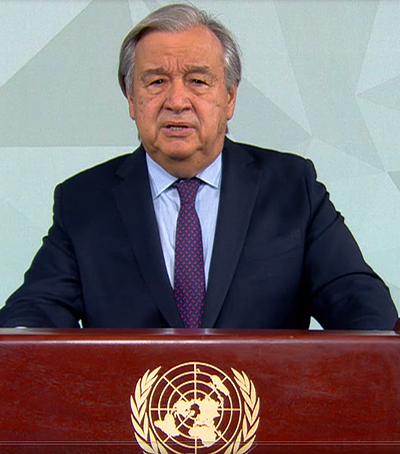
“Humanity is on thin ice – and that ice is melting fast,” Guterres warns in the video.
“As today’s report of the Intergovernmental Panel on Climate Change details, humans are responsible for virtually all global heating over the last 200 years,” he said.
“The rate of temperature rise in the last half century is the highest in 2,000 years.”
“Concentrations of carbon dioxide are at their highest in at least two million years,” said the UN chief.
“The climate time-bomb is ticking. But today’s IPCC report is a how-to guide to defuse the climate time-bomb.”
Climate-driven food and water insecurity is expected to grow with increased warming. When the risks combine with other adverse events, such as pandemics or conflicts, they become even more difficult to manage.
If we act now, says IPCC Chairman Hoesung Lee of South Korea, we have the solutions “to secure a livable, sustainable future for all.” But we must act today, not tomorrow. And we must be guided by fairness. Almost half of the world’s population lives in places that are “highly vulnerable to climate change,” where “deaths from floods, drought, and storms [have been] 15 times higher” than elsewhere.
“Mainstreaming effective and equitable climate action will not only reduce losses and damages for nature and people, it will also provide wider benefits,” said Lee. “This Synthesis Report underscores the urgency of taking more ambitious action and shows that, if we act now, we can still secure a liveable sustainable future for all.”
Time is Short, but There Is a Clear Path Forward
If temperatures are to be kept to 1.5 degrees Celsius above pre-industrial levels, deep, rapid, and sustained greenhouse gas emissions reductions will be needed in all sectors this decade, the reports states.
Emissions need to go down now, and be cut by almost half by 2030, if this goal has any chance of being achieved.
The solution proposed by the IPCC is “climate resilient development,” which involves integrating measures to adapt to climate change with actions to reduce or avoid greenhouse gas emissions in ways that provide wider benefits.
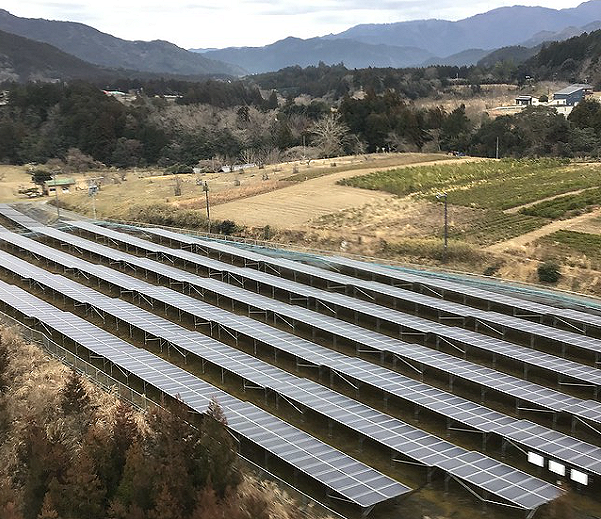
Examples include access to clean energy, low-carbon electrification, the promotion of zero and low carbon transport, and improved air quality: the economic benefits for people’s health from air quality improvements alone would be roughly the same, or possibly even larger, than the costs of reducing or avoiding emissions
“The greatest gains in wellbeing could come from prioritizing climate risk reduction for low-income and marginalized communities, including people living in informal settlements,” said Christopher Trisos, one of the 93 authors of this Synthesis Report, the closing chapter of the Panel’s Sixth Assessment.
“Accelerated climate action will only come about if there is a many-fold increase in finance. Insufficient and misaligned finance is holding back progress,” said Trisos, who directs the Climate Risk Lab at the African Climate and Development Initiative, University of Cape Town.
Climate justice is as important as climate finance, other authors say.
“Climate justice is crucial because those who have contributed least to climate change are being disproportionately affected,” said co-author Dr. Aditi Mukherji who leads the Water and Air Theme of the International Centre for Integrated Mountain Development in Nepal.
“Almost half of the world’s population lives in regions that are highly vulnerable to climate change. In the last decade, deaths from floods, droughts and storms were 15 times higher in highly vulnerable regions,” she said.
Governments Are Key
The power of governments to reduce barriers to lowering greenhouse gas emissions, through public funding and clear signals to investors, and scaling up tried and tested policy measures, is emphasized in the report.
Changes in the food sector, electricity, transport, industry, buildings, and land use are highlighted as important ways to cut emissions, as well as moves to low-carbon lifestyles, which would improve health and wellbeing.
“Transformational changes are more likely to succeed where there is trust, where everyone works together to prioritize risk reduction, and where benefits and burdens are shared equitably,” said IPCC Chair Lee.
That aspirational view is good for inspiration, but the real world situation is different.
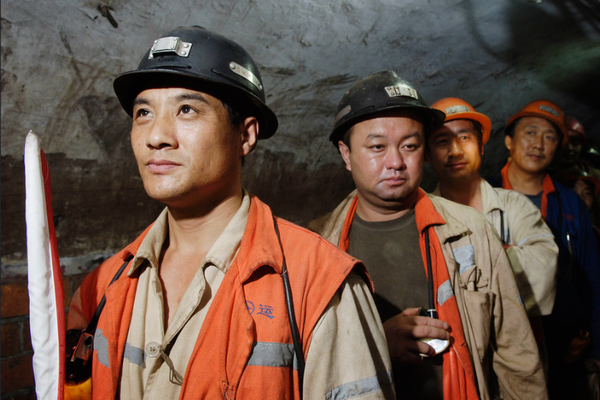
In the United States, the Biden Administration this month approved ConocoPhillips’ massive Willow oil development project in Alaska. A dozen conservation groups are suing the government to stop the oil project. In addition to concerns about a fast-warming Arctic, groups argue that the project could destroy habitat for native species and alter the migration patterns of animals.
China last year authorized construction of 106 gigawatts worth of new coal plants, and coal remains at the core of China’s economy, Michael Standeart, a freelance journalist in southern China, wrote for the Yale School of Environment in March 2021 after tracking China’s coal development for several years.
“In 2019, 58 percent of the country’s total energy consumption came from coal, which helps explain why China accounts for 28 percent of all global CO2 emissions. And China continues to build coal-fired power plants at a rate that outpaces the rest of the world combined. In 2020, China brought 38.4 gigawatts of new coal-fired power into operation, more than three times what was brought on line everywhere else,” Standeart wrote.
Lee, the IPCC chief, said, “This Synthesis Report underscores the urgency of taking more ambitious action and shows that, if we act now, we can still secure a liveable sustainable future for all.”
UN Chief Has a Plan to Speed Progress
Climate action is needed on all fronts: “Everything, Everywhere, All at Once,” Guterres declared, referring to this year’s Academy Award winner for Best Film.
The UN chief has proposed to the G20 group of highly developed economies a “Climate Solidarity Pact,” in which all big emitters would make extra efforts to cut emissions, and wealthier countries would mobilize financial and technical resources to support emerging economies in a common effort to ensure that global temperatures do not rise by more than 1.5 degrees Celsius above pre-industrial levels.
Guterres announced that he is presenting the plan to boost efforts to achieve the Climate Solidarity Pact through an Acceleration Agenda, which involves leaders of developed countries committing to reaching net zero as close as possible to 2040, and developing countries as close as possible to 2050.
The Acceleration Agenda calls for an end to coal, net-zero electricity generation by 2035 for all developed countries and 2040 for the rest of the world, and a stop to all licensing or funding of new oil and gas, and any expansion of existing oil and gas reserves.
These measures, Guterres said, must accompany safeguards for the most vulnerable communities, scaling up finance and capacities for adaptation and loss and damage, and promoting reforms to ensure Multilateral Development Banks provide more grants and loans, and fully mobilize private finance.
Looking ahead to the upcoming UN climate conference, due to be held in Dubai from November 30 to December 12, Guterres said that he expects all G20 leaders to have committed to ambitious new economy-wide nationally determined contributions encompassing all greenhouse gases, and indicating their absolute emissions cuts targets for 2035 and 2040.
Journey to Net-Zero Picks Up Pace
Achim Steiner, administrator of the UN Development Programme, UNDP, points to signs that the journey to net-zero is picking up pace as the world looks to the 2023 UN Climate Change Conference, COP28, in Dubai, United Arab Emirates.
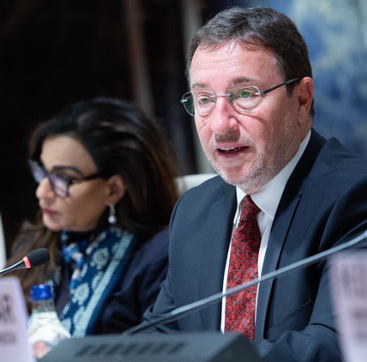
“That includes the Inflation Reduction Act in the U.S., described ‘the most significant legislation in history to tackle the climate crisis’ and the European Union’s latest Green Deal Industrial Plan, a strategy to make the bloc the home of clean technology and green jobs,” Steiner said.
“Now is the time for an era of co-investment in bold solutions,” Steiner said. “As the narrow window of opportunity to stop climate change rapidly closes, the choices that governments, the private sector, and communities now make – or do not make – will go down in history.”
“Finance, technology and international cooperation are critical enablers for accelerated climate action,” the IPCC reports. “If climate goals are to be achieved, both adaptation and mitigation financing would need to increase many-fold.”
“There is sufficient global capital to close the global investment gaps but there are barriers to redirect capital to climate action,” the IPCC says. “Enhancing technology innovation systems is key to accelerate the widespread adoption of technologies and practices. Enhancing international cooperation is possible through multiple channels,” the IPCC states with “high confidence.”
The solution lies in climate resilient development, the IPCC declares. This involves integrating measures to adapt to climate change with actions to reduce or avoid greenhouse gas emissions in ways that provide
wider benefits.
The IPCC gives well-known solutions such as access to clean energy and technologies that improve health, especially for women and children; low-carbon electrification such as solar and wind energy, walking, cycling and public transport that enhance air quality, improve health.
“Climate resilient development becomes progressively more challenging with every increment of
warming,” the IPCC reports, explaining that, “This is why the choices made in the next few years will play a critical role in deciding our future and that of generations to come.”
Featured image: Wind turbines at sunset on the shores of Bedford Basin, Halifax, Nova Scotia, Canada. July 15, 2022 (Photo by Admitter)


